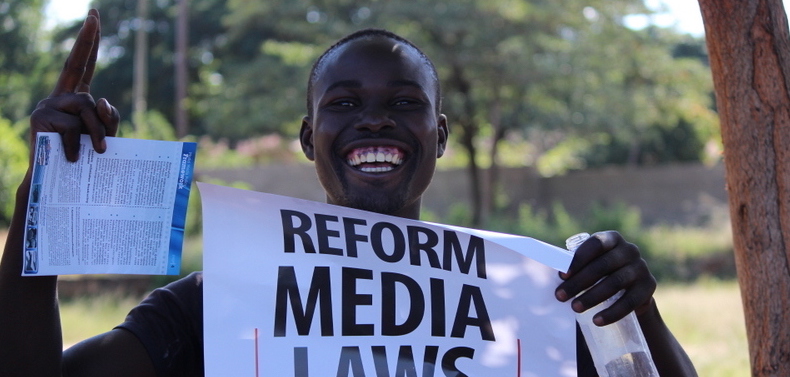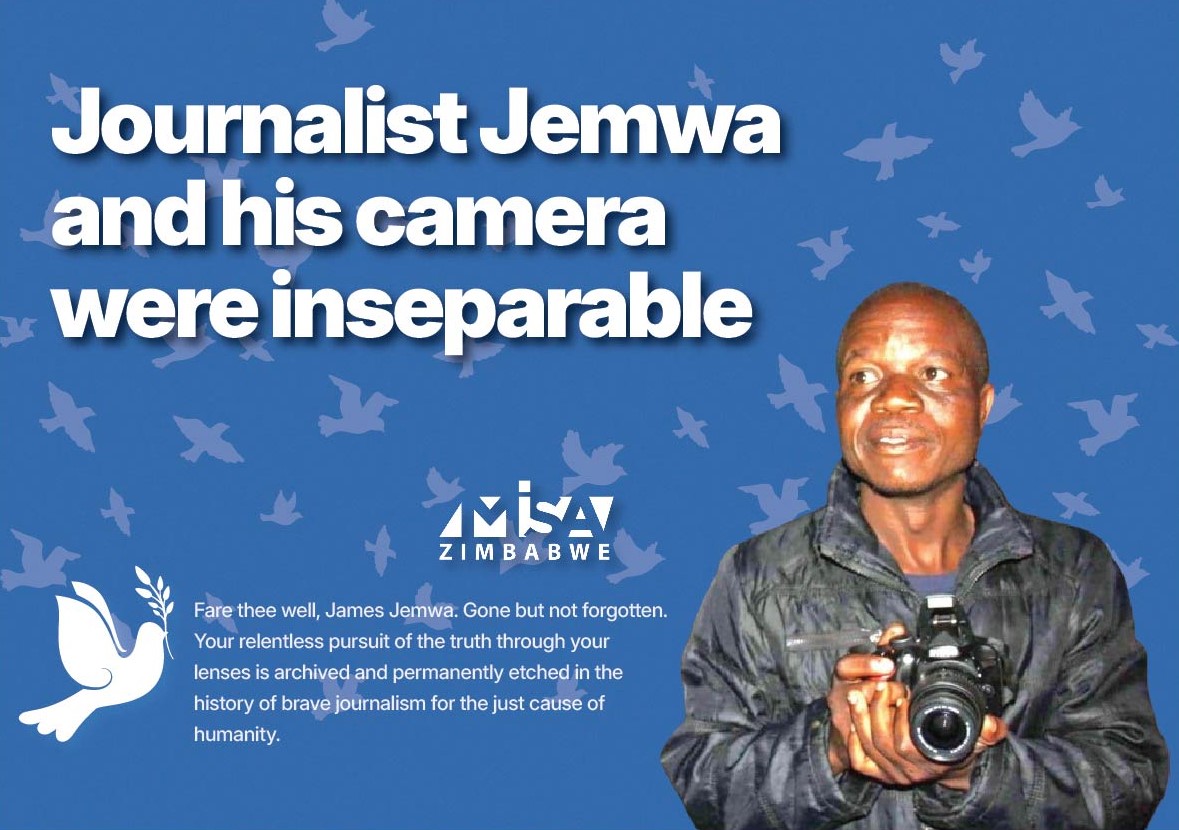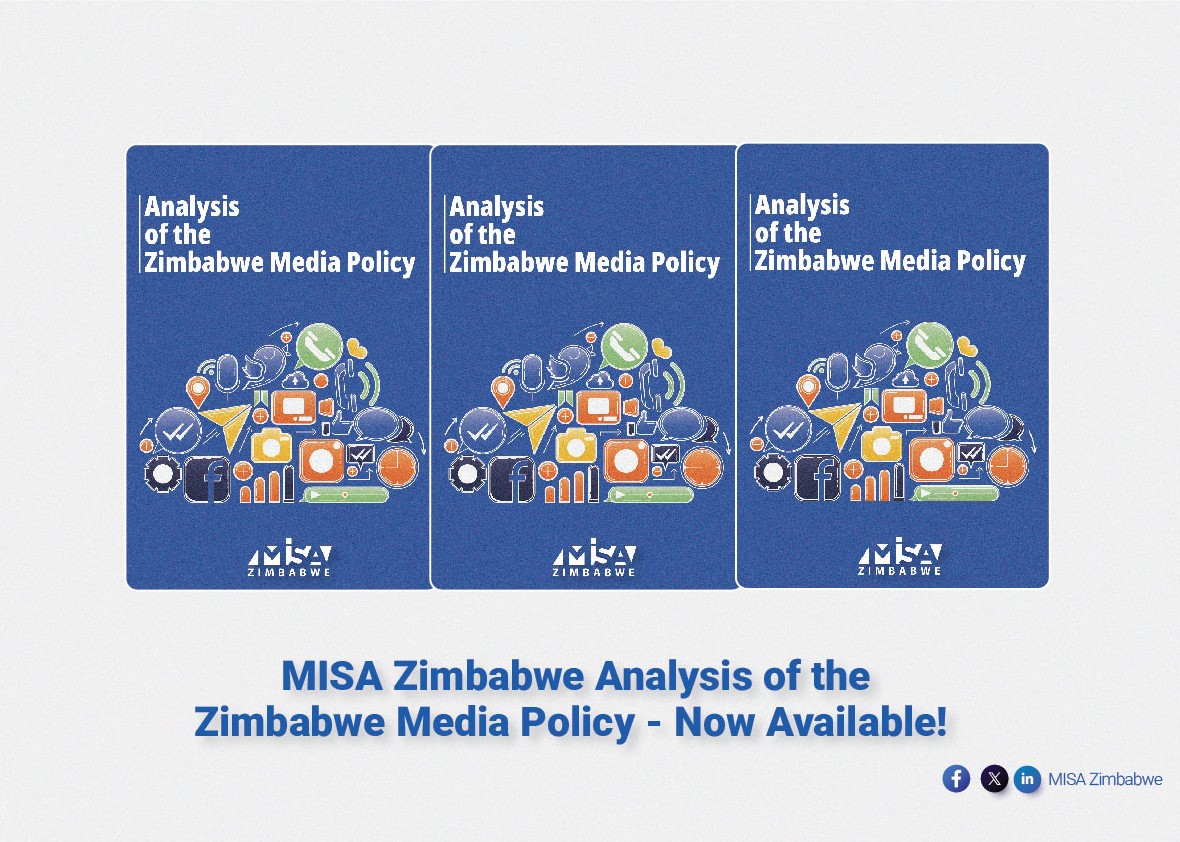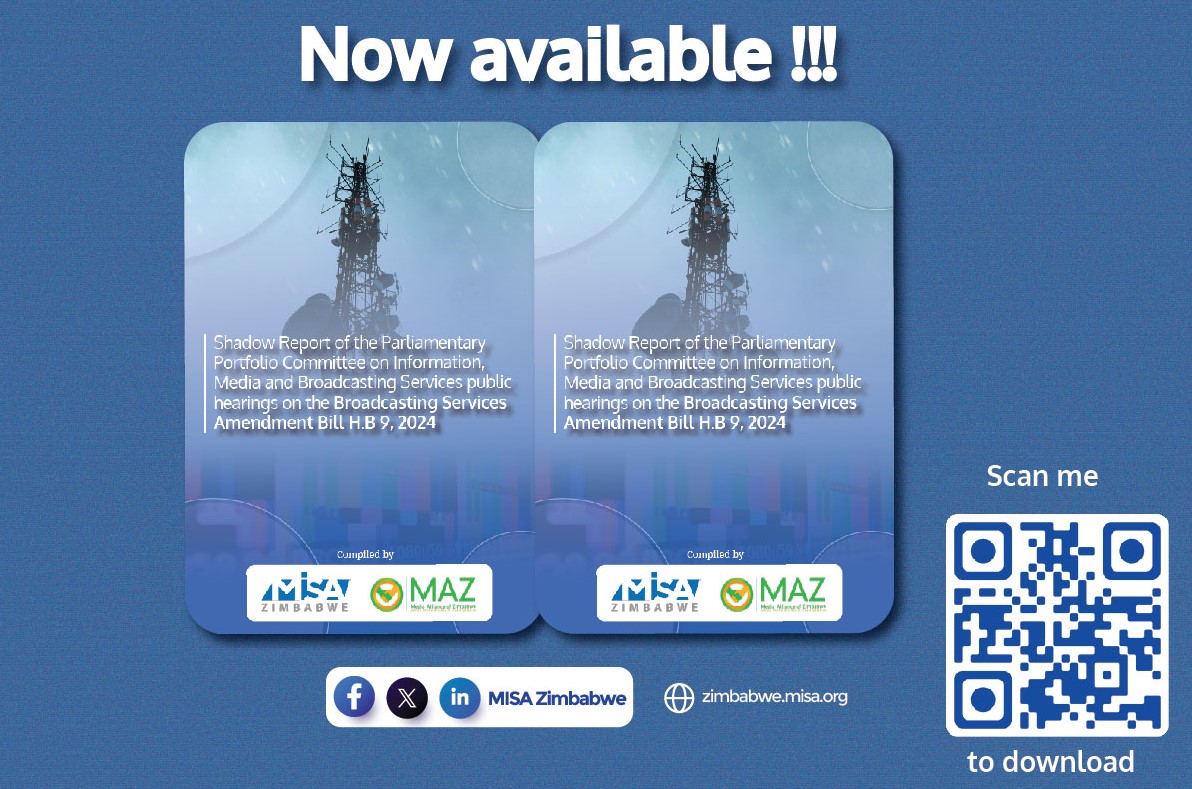By Maxwell Sibanda
This week as we celebrate World Press Freedom Day, we will be publishing articles on the media landscape in Zimbabwe and to kick-start the articles today, we look at Media Institute in Southern Africa (MISA) Zimbabwe’s challenges and successes over the years.
Over the past years, MISA Zimbabwe has positioned itself as the primary advocate for media freedom and freedom of expression in Zimbabwe.
As a result, MISA Zimbabwe’s work and agenda have also been taken up by many civic organisations thereby creating consciousness of the linkages between media freedom, freedom of expression and broader human rights and democratic campaigns.
The Zimbabwe Chapter of MISA was formed by a Trust on August 27, 1995, and established a fully- fledged secretariat made up of three people by August 1997. MISA Zimbabwe has grown since 1997 with 180 paid-up members comprising media practitioners and media houses.
Through a constitutional amendment made in 2001, MISA Zimbabwe is now accepting associate membership from persons with an interest in media freedom and freedom of expression.
MISA Zimbabwe has also since decentralised some of its activities to advocacy committees that are recognised in its Constitution through a constitutional amendment enacted in 2008.
Voluntary Media Council of Zimbabwe (VMCZ) executive director Loughty Dube was Misa Zimbabwe deputy chairperson in 2004 and took over the chairmanship in 2007 up until 2012, time which he had the privilege of having three different directors namely; Takura Zhangazha, Rashweat Mukundu and Nhlanhla Ngwenya working with him.
“During this time we had challenges around Access to Information and Protection of Privacy Act (AIPPA). We were also instrumental in setting up the Media Defence Fund and managed to set up the Advocacy Committees and we were able to set up the Media Centre.”
He said the worst part of challenges he faced as MISA Zimbabwe chairperson was the government intimidation that saw journalists being arrested and harassed. “The clampdown on the media meant that some programmes could not be done openly.”
While over the years there seems to have been resistance from the government, especially from the information ministry on the role of MISA Zimbabwe in Zimbabwe’s media sector, Dube said: “Yes, there has been a lot of suspicion mainly because MISA Zimbabwe criticised media violations in the country.
The perception is now better as the government now engages with MISA Zimbabwe on a variety of issues.
“During my time as chairman, it was more like a cat and mouse relationship where even the talk in government circles was to equate MISA to a regime change institution but that perception has changed now.”
Now working as VMCZ executive director, Dube said his experience working as chair at MISA Zimbabwe has helped in terms of creating synergies.
“MISA was responsible for setting up organisations such as the Media Centre, VMCZ, Media Monitoring Project of Zimbabwe (MMPZ) and Media Alliance of Zimbabwe (MAZ), hence the MISA chairperson should create partnerships and unify the different media organs.”
Former director of MISA Zimbabwe Rashweat Mukundu said he took over the directorship of the media organisation in 2004 and that was at the height of the media attacks evidenced by the banning of the Daily News and the Tribune and general attacks on the media.
“A key success in our time was ensuring that we did not have journalists in prison as a result of the many cases of arrests that were taking place. In this period, we engaged in capacity building of lawyers as well providing legal aid to journalists in distress.
“I remember very well that after the suspicious ‘stealing’ of computers at the Tribune, we supported the purchase of new computers to enable newsroom work to continue.
“We organised scholarships for journalists to either study or at least be safe outside the country,” said Mukundu.
He said protests against the Daily News banning were popularised in this time with campaigns inside and outside Zimbabwe calling for an end to attacks on the media.
“The constitutional case on journalism accreditation was also in this time, thereby allowing freelance journalists to seek accreditation as and when they so desired and not as a legal requirement.
“It was in this period that we lobbied and supported the set up of the VMCZ and encouraged communities to form Zacras. These two organisations are now critical to media freedom advocacy.”
Current MISA Zimbabwe chairperson Kumbirai Mafunda said it has been encouraging that his organisation played a significant role through its extensive advocacy programmes which yielded some results as in 2013 Zimbabweans got a new constitution with some a progressive and expansive Bill of Rights which citizens can enforce them.
“The Constitution under section 61 and 62 now guarantees freedom of expression and freedom of the media and access to information.
“This was not the case before and it’s worth taking note because information is the lifeblood in a democracy of which Zimbabwe is supposed to be,” said Mafunda.
Mafunda said MISA Zimbabwe has played an active role in communities and campaigns for the freeing up of the airwaves and the results are there for everyone to see as seen by the licensing of some radio stations in recent years even though there is need for more players in the broadcasting sector and giving communities voices through licensing community radio stations.
“MISA has supported its members who for years have been under siege and threat through legal and other interventions including supporting and training journalists.
“However, during the journey, we have encountered several obstacles as we have treaded on what we can call minefields littered with all sorts of arsenal to block our activities as we seek to have diversity, pluralism, freedom and independence of the media.
“These include the promulgation of some obnoxious laws such as AIPPA, POSA, Criminal Law (Codification and Reform) Act, the Broadcasting Services Act, the Interception of Communications Act, the Protected Areas Act, Official Secrets Act among other pieces of legislation,” said Mafunda.
He said the media watchdog has dealt with a government that loathes reforming such retrogressive laws to an extent those three years after the adoption of the new constitution the government has been reluctant to align or amend some offensive provisions.
“Nonetheless, through our dedicated members and secretariat we have employed legal means to try and serve our huge community in Zimbabwe including the general members of the public as we recently secured a landmark decision from the country’s apex court, the Constitutional Court which frowned on defamation and we are happy that MISA Zimbabwe scored such a key victory.”
Mafunda said they will continue doubling up their efforts so that the media enjoys freedom of expression, independent from political, economic and commercial interests, pluralism of views and options. “We envisage a situation where Zimbabweans individually or collectively are free to express themselves through any media of their choice without hindrance of any kind.”
Source: The Daily News, Zimbabwe
View: YouTube Video of MISA Testimonials













